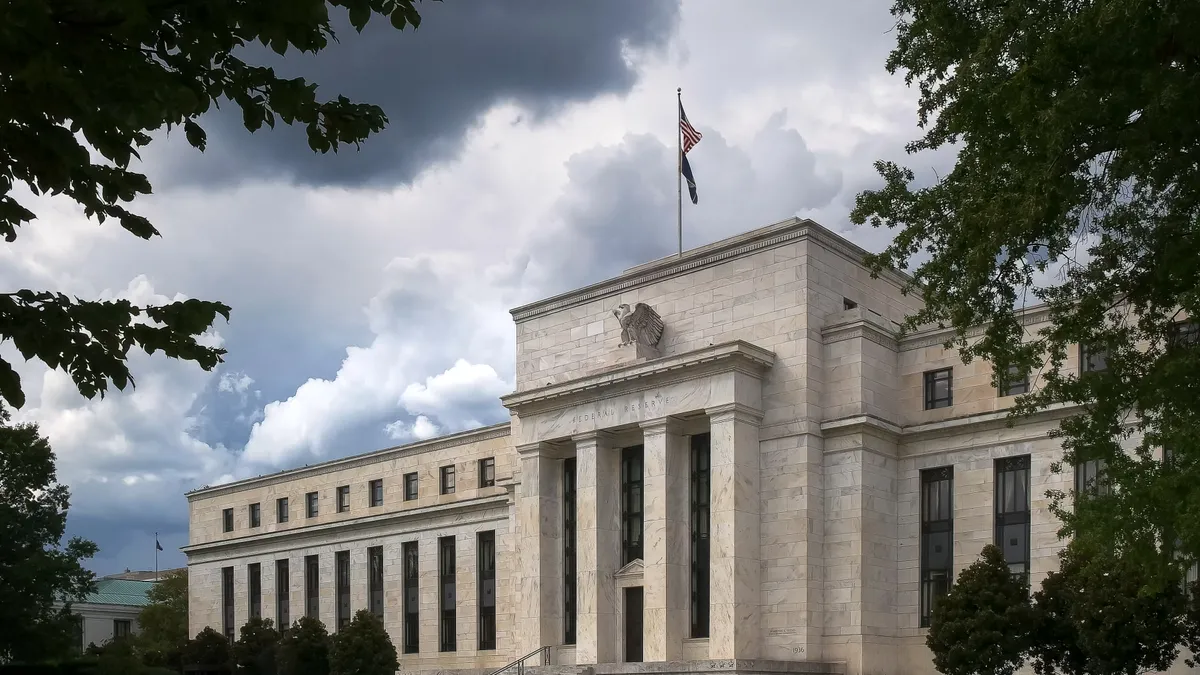Dive Brief:
- Federal Reserve banks will waive customer credit transfer fees and participation fees for the new FedNow instant payments system when it launches next year, the central bank said Thursday, giving participants a few months to try out the service at a heavily discounted rate.
- In a notice in the Federal Register regarding the pricing, the Fed also reiterated the fees the banks will ultimately charge — namely, customer credit transfer and customer credit transfer return fees of $0.045 per-item and a participation fee of $25 per routing transit number per month. Those prices are “substantially similar” to those announced in January, the Fed said in an accompanying press release.
- The Fed also reiterated that it expects to launch the new real-time payments system by the middle of next year. That launch will follow a pilot underway now and years of work on the project. The banks have said the service will be available as early as May and no later than July.
Dive Insight:
In starting the new real-time payments system, the Fed banks are seeking to keep pace with central banks worldwide that are pivoting to more efficient, faster payment systems. The Fed is also aiming to provide that instant payment capability more broadly to U.S. banks, beyond the reach of an existing private system.
While FedNow’s initial pricing will be similar to prices available under the rival private system, called the RTP Network, the federal government expects its pricing will change over time, though it didn’t provide any specifics on that front. “The Reserve Banks expect that the fee schedule will change as the service matures,” the Fed said.
Trying to pay for the FedNow service in a 10-year time frame, per federal guidelines, wouldn’t make sense in terms of pricing for the new offering, the Fed said.
“Application of the 10-year rolling time frame used to evaluate mature services to the FedNow Service would result in prohibitively high or unnecessarily volatile pricing, negatively affecting the Federal Reserve’s public policy objectives in providing the service,” the central bank said.
The Fed board reiterated in its Federal Register entry that it will disclose FedNow costs when the service is available for participating banks.
The Fed also noted again that it doesn't expect the new system to pay for itself any time soon. The central bank “expects the FedNow Service to achieve its first instance of long run cost recovery outside the 10-year time frame typically applied to mature services,” it said.
“New services like the FedNow Service may not initially have stable volumes, costs and revenues,” the central bank added.















